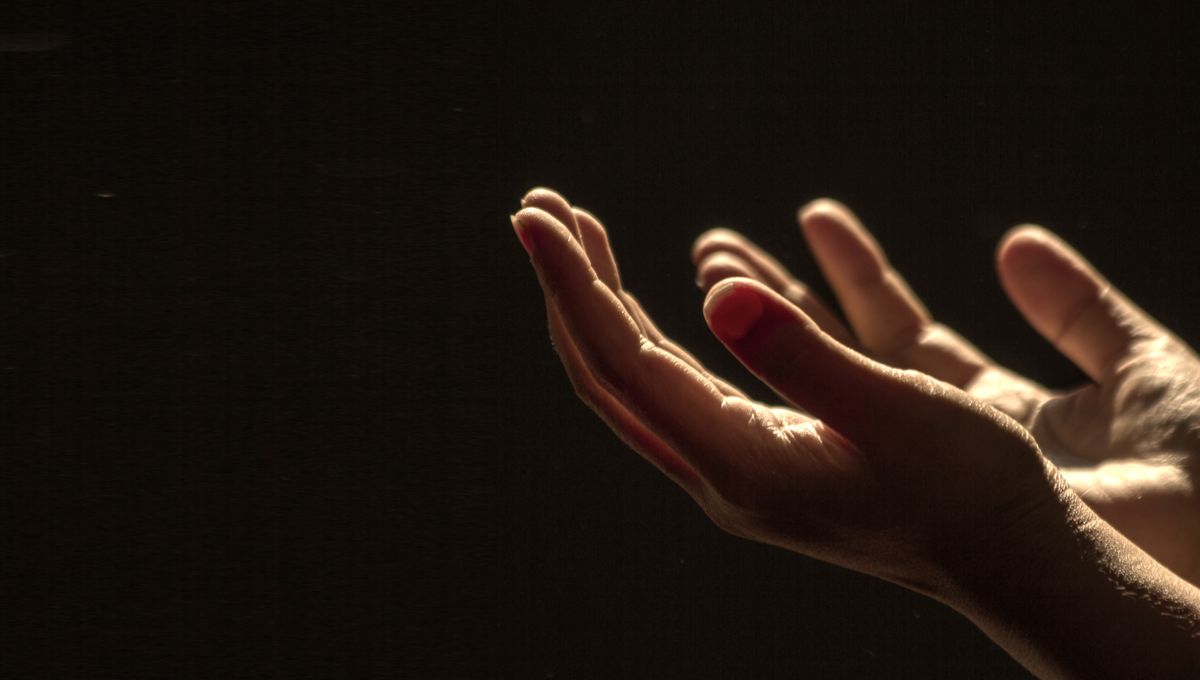
Despite the fact that daily or frequent prayer is a staple part of many people’s lives, our understanding of its relationship to everyday life and overall psychological wellbeing is surprisingly poor. But new research has addressed this gap and its findings are fascinating – not only do the results show that the substance of people’s prayers often reflects the experiences of their day, but they can also indicate how a person will feel the next day.
According to recent polls from the Pew Research Centre (2014) and the Baylor Religion Survey (2021), between 44 percent and 55 percent of Americans conduct daily prayers. Even those who do not affiliate themselves with any specific religion, a growing number of people across the Western world, still pray from time-to-time. It seems Americans are more likely to pray than to take part in any other form of religious devotion.
The situation is a little less clear in the UK. According to a 2021 ComRes opinion poll, 51 percent of young people in the UK prayed at least once a month, compared to only 24 percent of people over 55. This figure was initially celebrated as a sign of religious revival in the UK, but it has since been questioned as the results are significantly higher than any similar polls (accept others performed by ComRes). More conservative estimates conducted by the British Social Attitudes Survey in 2018 suggest that only 20 percent of people aged between 18 and 24 prayed at least once a month.
Regardless of these figures, it is clear that prayer is a common and meaningful practice for a large proportion of society. The scholar, William James, recognized it as “the very soul and essence of religion”.
It was this significance that led David B. Newman, a postdoctoral researcher at the University of California, San Francisco, and lead author of the study, to investigate the activity in relation to daily experience and wellbeing.
“More broadly speaking, I’m interested in understanding well-being in everyday life,” Newman said in a interview with PsyPost. “Religious beliefs and experiences are important factors to consider when examining well-being. There has been very little research on prayer and well-being in people’s daily lives. My former adviser was also interested in the topic and encouraged me to pursue this line of research.”
To study this relationship, Newman and his colleagues conducted three studies where they asked 350 participants to carry out daily diary reports for two weeks. In these reports, participants recorded their daily experiences, their emotions and sense of wellbeing, as well as the type of prayer they performed – adoration, confession, thanksgiving, and supplication.
The results showed that, of the four types of prayer, prayers of supplication and thanksgiving were most common, followed by adoration and confession. They also showed that the type of prayer performed was related to the experiences participants had during their days, as well as their emotional state and sense of wellbeing. For example, people made more prayers of adoration and thanksgiving when they experienced positive events during their days and their wellbeing was high, whereas supplication prayers – the act of begging or pleading for something – were more pronounced on days when negative events appeared in the diary and wellbeing was down.
“One key takeaway from these studies is that the content of people’s prayers changes from one day to the next,” Newman told PsyPost. “People tend to express thanksgiving and adoration in their prayers when the day is going well, and they tend to express supplication when the day isn’t going well.”
The type of prayers people conducted were also linked to specific emotions. While thanksgiving might relate to a sense of gratitude, confession related to guilt, adoration related to fear, and supplication to a feeling of envy.
Perhaps the most interesting outcome from the study was that there appeared to be a lagged relationship between a prayer performed on one day and the sense of wellbeing reported on the next. The results showed that, when participants reported prayers of supplication, adoration, and thanksgiving, they tended to have a reduced sense of wellbeing the next day. Moreover, this lagged relationship was less noticeable in individuals who prayed more regularly, suggesting that inconsistent prayer “had a negative influence on well-being the following day,” the authors concluded.
Overall, the study provides valuable insights into our understanding of how prayer practices relate to wider experiences and psychological states, but it is not without its limitations. For one thing, the researchers focused on American undergraduates, most of whom identified as Christians. In different cultures and religions, the expression of adoration, supplication, thanksgiving and confession can vary greatly in quantity and nature.
“Our findings might not generalize to other religious groups, and content of prayers may relate to daily events and well-being in different ways depending on people’s faith”, the team noted.
There is also a question of age, as many studies have shown that older people tend to pray more often than young people; they are also more likely to experience feelings of spiritual peace. So the nature of older people’s reports and their relationship with everyday experience could be much different.
Find out more about scientific research into religious experiences here.
The study is published in the Journal of Personality and Social Psychology.
[H/T: PsyPost]
Source Link: How Different Types Of Prayer Interact With Daily Life And Sense Of Wellbeing